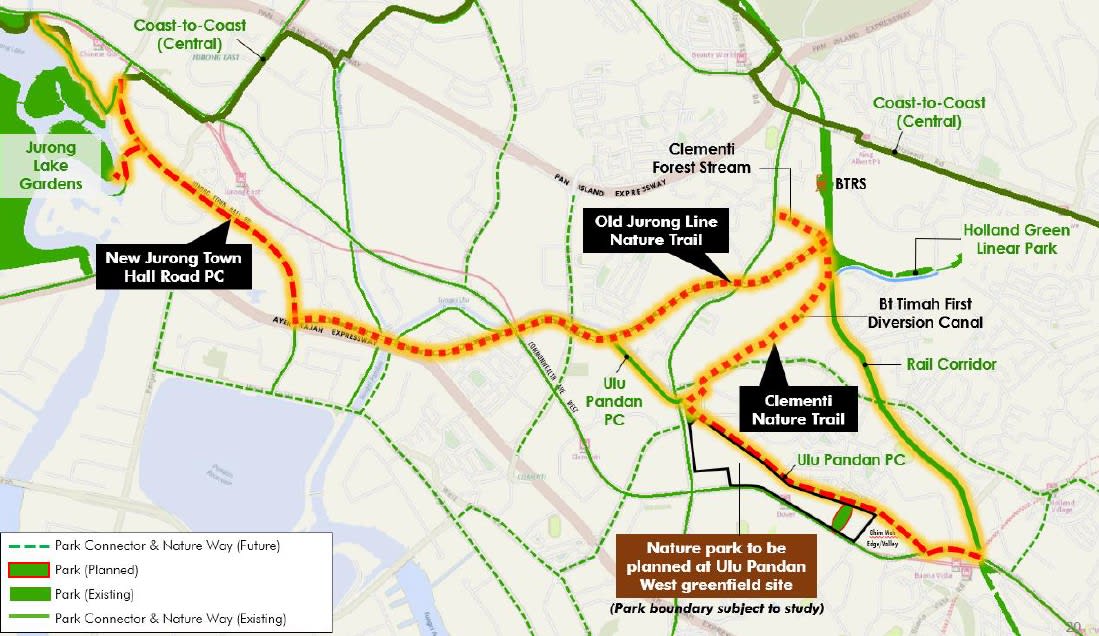NParks to manage consultants for environmental impact assessments of nature-sensitive projects
This approach is aimed at consolidating information on Singapore’s biodiversity and enhancing standards across the industry, says NParks.
SINGAPORE: Consultants who are engaged to assess the environmental impact of developmental works on an area's biodiversity will be centrally managed by the National Parks Board (NParks) from 2023, instead of the developers.
Announcing this on Saturday (Aug 27), Minister for National Development Desmond Lee said authorities will pilot this approach with new Housing and Development Board (HDB) and JTC development projects that require an environmental impact assessment (EIA).
"This move will further strengthen the EIA framework by enhancing standards across the industry and consolidating information on Singapore’s biodiversity," said NParks in a media release.
Under the current EIA framework, proposed development projects that are close to sensitive nature areas, marine or coastal areas, or have potential transboundary impact undergo an in-depth consultation process.
During this process, technical agencies determine if an EIA is required.
An EIA typically consists of a baseline survey, assessment of environmental impact and the creation of mitigating measures, as well as an environmental management and monitoring plan.
Developers are required to consult the relevant technical agencies on the scope of the EIA and engage a consultant to carry out studies.
They must also share the report with relevant agencies and the public.
Going forward, NParks said it will engage EIA consultants through a centralised demand aggregate tender.
It will also manage consultants directly on behalf of the agencies.
“This will enable NParks to work more closely with the consultants to standardise survey methodologies and develop industry best practice guidelines,” said the agency.
It added that information from various EIAs will be consolidated in a centralised biodiversity database to facilitate long-term monitoring and research.
The move will reduce the time needed for developing agencies to call for tenders, and consultants preparing bids for each project, said NParks.
"This will translate to potential time and cost savings by minimising duplicative work," it added.
The new approach to managing consultants follows discussions last year on how authorities will strengthen the EIA framework, after forest areas in Kranji were mistakenly cleared before the conclusion of an environmental study.
Mr Lee said authorities will decide later whether to introduce the new approach involving NParks to all government projects.
"We remain committed to safeguarding our natural heritage and transforming Singapore into a City in Nature," he said in a Facebook post on Saturday.
CLEMENTI NATURE CORRIDOR
NParks also said on Saturday that it has called for an EIA for the development plans for Clementi Nature Trail, which links the Clementi Forest Stream to a new nature park in Ulu Pandan West.
The trail is part of the larger Clementi Nature Corridor.
To supplement the biodiversity baseline survey in the EIA, NParks organised a citizen science survey this weekend to study the flora and fauna along Clementi Forest Stream.
“The data collected will help to guide habitat enhancement efforts for the area, such as the choice of plant species along the stream banks to support aquatic biodiversity,” said NParks.
Mr Lee, who was with participants at Clementi Forest on Saturday, added: “Ensuring that we take a science-based approach towards protecting our biodiversity is important and we remain committed to carrying out EIAs for development projects close to nature areas.”
He also said that the EIA processes will be regularly reviewed to ensure they remain “robust and relevant”.

















